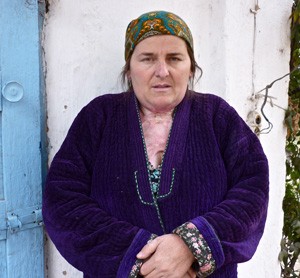
A few pennies per month may mean the difference between life and death for a woman in the mountainous villages of Tajikistan. There, in such isolation, USAID and partner Mercy Corps have been helping mothers prepare for worst-case scenarios since 2009.
Some of this assistance comes by way of training community-selected volunteers to improve women's knowledge on health, agriculture and disaster preparedness. Another has been the creation of a Mother's Fund – a community-managed pool of money – to respond to the emergency health issues of mothers and their children. Every mother contributes as much as she can to the fund and it's used as a form of informal health insurance when money is tight.
Shulabibi Ismatova, a 38-year-old housewife, is a resident of Pildoni Bolo, a remote village in Tajikistan's Rasht Valley. Her husband is a migrant laborer in Russia, along with many other men who work abroad to provide for their extended families. Ismatova lives alone with her mother-in-law and four young children.
One day, while starting a fire in the tandur (traditional oven) to bake bread, a fuel explosion caused severe burns on Ismatova's throat and chest. With her husband away and her children and mother-in-law in shock from the accident, no one was able to help her. For the poor family, a ride to the hospital was cost-prohibitive.
After hearing the commotion, Mohiyon, a neighbor and an agriculture volunteer with the program, came to their aid. She gave them $11 from the Fund and organized a car to take Ismatova to the hospital, 16 miles away. Although Ismatova was in a critical condition, she has recovered after nearly a one-month stay.
"I can't imagine what my children would have done on that terrible day if there had been no Mothers' Fund," said Ismatova. "Those days nobody believed that I would recover. I wish prosperity to the Mercy Corps volunteers that helped me survive."







Comment
Make a general inquiry or suggest an improvement.